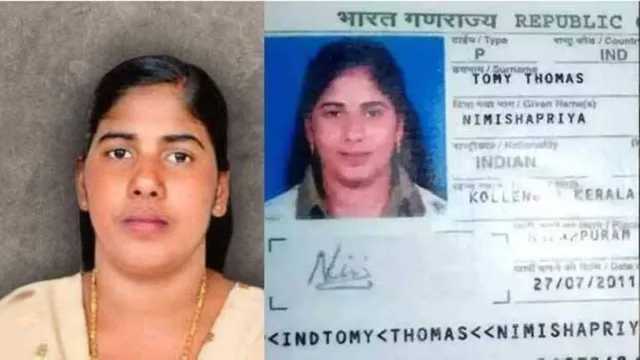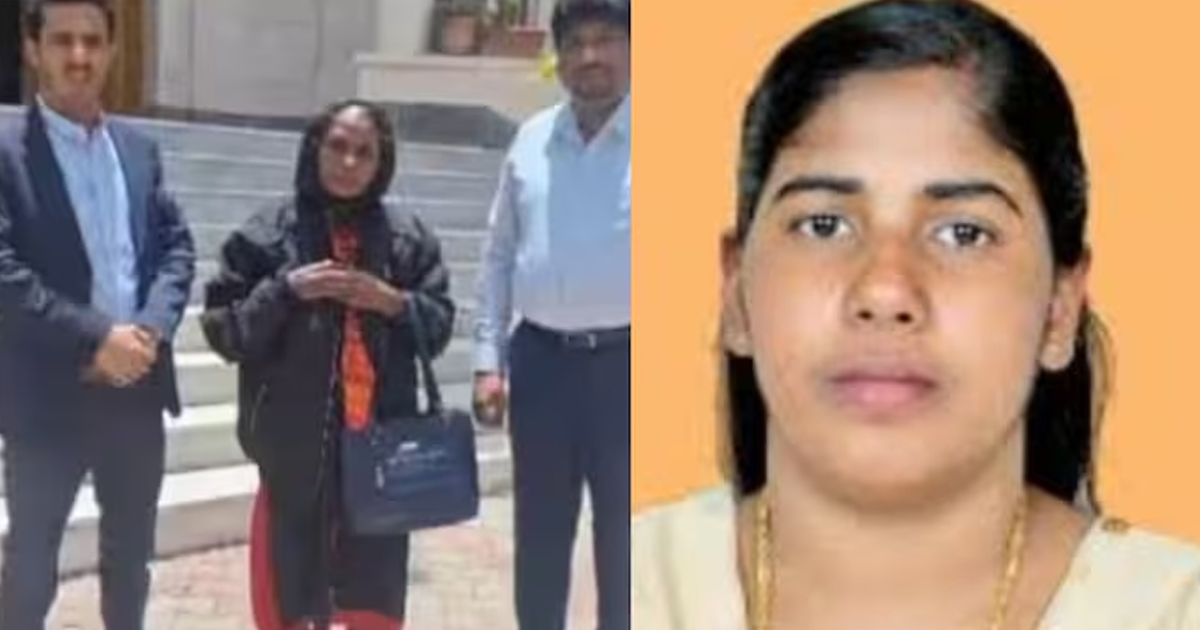In a dramatic turn of events, Yemeni authorities have postponed the execution of Indian nurse Nimisha Priya, delivering a moment of relief to her family, legal team, and supporters in India and around the world. The execution, originally scheduled for July 16, 2025, was deferred following a surge of diplomatic pressure, intense negotiations, and unprecedented religious intervention involving top spiritual leaders from both India and Yemen. This high-stakes case—which has captured headlines and humanitarian concern across continents—highlights the intricate interplay of international diplomacy, religious law, and hope in impossible situations.
The emotional toll on Nimisha Priya’s mother and young daughter has been immense and heartbreaking. Her daughter, who was separated from her mother as a child when Nimisha was first imprisoned, has frequently appeared in public appeals, pleading with both Indian and Yemeni authorities to save her mother’s life. Social media campaigns have captured her heartfelt pleas, making her voice one of the most poignant symbols of this case. Community members in Kerala have conducted prayers, candlelight vigils, and fundraising events in solidarity—not just as a fight for justice, but a fight for a family’s right to be reunited.
Back in Yemen, the deeply rooted tribal and religious traditions play a decisive role in dispute resolution and justice systems. The complexities in such legal frameworks lie in the fact that closure often depends not only on the court’s decision but also on the social, spiritual, and sometimes emotional dynamics between families, elders, and community leaders. The victim’s family, exercising their right under Sharia law, continues to hold the power to approve or deny any blood money exchange. This makes the situation uniquely sensitive and fraught with delays, as emotions, honor, and justice intertwine.
Legal experts in India have pointed out that Priya’s case demonstrates the limitations Indian authorities face when Indian citizens are entangled in serious legal entrapments abroad. Since India has no formal diplomatic presence in Yemen due to prolonged conflict and political instability, consular access and diplomatic mediation have been undertaken through alternative channels such as its mission in Djibouti. This arrangement has complicated the speed and visibility of the efforts undertaken for Priya. Still, her case has highlighted the need for India to develop a more comprehensive and strategic framework for protecting its citizens in high-risk legal environments overseas.
Human rights organizations have expressed concern over the lack of transparency in how executions are scheduled, monitored, and sometimes publicly carried out in Yemen. Many executions occur in public squares, with large crowds gathering to witness the act—a practice that has been condemned by several global human rights forums. The fear that Nimisha Priya could be subjected to a similar spectacle intensified the tension around her case. Today’s postponement, while a relief, has also sparked renewed calls for Yemen to reevaluate its criminal justice system’s compliance with international human rights obligations, particularly concerning foreign nationals.
Nimisha’s case has not only drawn support from the healthcare community in Kerala but also across India’s vast network of nurses and allied medical professionals who see her as one of their own. Many health workers perceive her story as emblematic of the vulnerabilities Indian workers face abroad—often working in dangerous conditions, without proper legal safeguards, and subject to exploitation. Nimisha’s journey, from a committed nurse to being convicted overseas and now facing potential execution, speaks volumes about the kind of systemic support Indian expatriate workers require, especially in regions embroiled in political or civil unrest.

1. The Crime, Conviction, and Imminent Execution
Nimisha Priya, a nurse from Palakkad district, Kerala, has been imprisoned in Yemen’s Sanaa Central Jail since her conviction in a 2017 murder case. She was found guilty of killing her former Yemeni business associate Talal Abdo Mahdi, whose remains were discovered in a water tank. In 2020, Yemen’s capital city court sentenced Priya to death. The verdict, which was upheld by the nation’s President Rashad al-Alimi last year, left Priya’s fate hanging by a thread. With her final appeal dismissed in 2023, her execution was set for July 16, 2025—a deadline that loomed over her and her distressed family until today’s sudden deferment.
2. A Last-Minute Lifeline: India’s Intense Diplomatic Push
The postponement of Priya’s execution is the result of a tireless, behind-the-scenes effort led by Indian diplomats, legal negotiators, and activist groups. For months, Indian authorities maintained close contact with Yemeni jail officials and the prosecutor’s office, striving for any extension that could facilitate talks between Priya’s family and the victim’s relatives. Top government lawyer Attorney General R Venkataramani publicly acknowledged New Delhi’s limited options, given Yemen’s judicial sovereignty, but assured the Supreme Court that every possible diplomatic and humanitarian avenue was being explored.
3. Religious Leaders Step In and Shift the Tide
The dialogue reached a turning point with the intervention of spiritual leaders—most notably Kerala’s Grand Mufti, Kanthapuram A P Aboobacker Musliyar (Sheikh Abubakr Ahmad), and Sufi leader Sheikh Habib Umar bin Hafiz in Yemen. Kanthapuram enlisted Sheikh Umar’s support, resulting in a high-level meeting in Dhamar, Yemen, with leading members of Mahdi’s family. Also taking part was the Chief Justice of Hodeidah State Court, a close associate of the victim’s family as well as a Sufi leader’s son, adding further influence to negotiations. According to sources, this unprecedented spiritual alliance helped secure Yemeni officials’ agreement to postpone the execution and opened a rare window for renewed family talks and potential settlement.
4. “Blood Money” Negotiations: The Only Hope for Clemency
Under Yemen’s Islamic legal system (Sharia), the only remaining avenue for Priya’s survival is a formal pardon from the victim’s family in exchange for diyah (blood money). Reports indicate that Priya’s family and Indian supporters have raised approximately $1 million in hopes of persuading Mahdi’s relatives. However, the family of the deceased had previously rejected all reconciliation overtures, demanding only the execution in line with “Qisas”—retributive justice. While today’s talks, brokered by religious leaders, are seen as a remarkable opening, the victim’s family has yet to signal willingness to accept compensation or grant clemency.
5. Secrecy and Sensitivity: Why News of the Delay Was Withheld
According to negotiators, including social worker Samuel Jerome Bhaskaran, the final decision to postpone the execution involved a directive from the President of Yemen, following intervention from regional rulers and advice by the Attorney General. The official order reached Sanaa Central Jail via the public prosecutor on July 14. Yet news of Priya’s temporary reprieve was deliberately kept under wraps until the last minute to prevent public unrest. Sources noted that crowds were gathering to witness the scheduled execution, and an early announcement could have triggered law and order complications, since the victim’s family remained unsatisfied with any delay.
6. Widespread Humanitarian and Media Pressure
Priya’s case has generated national and international attention, stirring appeals from Indian media, legal experts, human rights groups, and the general public. Organizations like Amnesty International have called on Yemen’s authorities to declare a moratorium on executions and uphold fundamental human rights for foreign detainees. As India’s Supreme Court monitored New Delhi’s efforts, Priya’s supporters mobilized social campaigns and fundraising initiatives—demonstrating a potent convergence of legal, humanitarian, and community resolve rarely seen in such transnational capital cases.

7. A Fragile, Unfinished Battle
Though the execution has been deferred, Nimisha Priya’s fate remains precarious. Unless the victim’s family chooses to accept blood money and formally pardon her, the threat of execution persists. Indian officials, Priya’s family, and religious intermediaries are intensifying their efforts to keep dialogue open in the hopes of achieving a full clemency settlement. For now, the postponement is being celebrated as a dramatic, hard-won victory—an outcome that highlights the profound impact of cross-cultural diplomacy, faith, and collective action at the very edge of hope.
Conclusion
As new talks unfold in Yemen and India, all eyes remain fixed on the next phase of negotiations—knowing that a woman’s life is suspended between two systems of law, culture, and humanity. The case of Nimisha Priya has underscored the complexity of justice in a fractured world and the extraordinary lengths that individuals, governments, and faith leaders will go to intervene. While relief floods her home state of Kerala and among her supporters worldwide, the fight to save Nimisha Priya is far from over.
While the specifics of the crime remain sensitive, Priya’s legal team maintains that her actions were driven by desperation and trauma. Reports suggest that she was subjected to severe exploitation by the victim, which allegedly included financial and physical abuse. Her lawyers argue that the act was committed in self-defense or under extreme emotional distress and that she received inadequate legal representation during her initial trial. These claims have fueled arguments from various humanitarian groups for a retrial or pardon, re-igniting debates around access to justice and the quality of legal aid offered to foreign nationals facing capital punishment.
As negotiations for blood money continue, fundraising efforts within the Indian community and diaspora have intensified. NGOs and civic groups are spearheading donation drives both online and on the ground. The target remains steep, especially since the victim’s family has reportedly not publicly accepted the idea of compensation. Still, campaigners remain hopeful that with continued mediation from spiritual leaders and assurances of long-term support, a mind-change is possible. What adds further complexity is that collecting and transferring such funds legally across borders, especially in a conflict-ridden nation like Yemen, is a logistical and diplomatic challenge in itself.
The case has prompted broader questions about how India protects women working abroad, especially nurses, domestic workers, and caregivers in countries with vulnerable legal and safety frameworks. Kerala, which has one of India’s largest overseas working populations, has paid particular attention to this case. State government officials have called for better orientation programs for citizens traveling abroad for work, including legal counseling, awareness campaigns, and a crisis management framework. There are growing calls for India to sign more bilateral agreements on labor rights and criminal justice cooperation with high-risk countries to prevent such situations from arising in the future.
Within India’s legal and political circles, Nimisha Priya’s situation has become a lightning rod for discourse around the death penalty itself. Several MPs and judges have voiced discomfort at the idea of foreign nationals being executed in cases where cultural and contextual misunderstandings might have influenced the outcome. Some legal scholars have used the case to re-emphasize India’s call for a universal moratorium on capital punishment, or at least global protocols ensuring that foreign prisoners receive diplomatic assistance and humanitarian protection, especially in countries without robust legal aid systems.

If Nimisha is ultimately granted clemency, it would not just signal a legal victory but also a humanitarian and diplomatic achievement that underscores the power of cross-cultural dialogue, spiritual diplomacy, and grassroots pressure. Conversely, should talks fail and the execution proceed at a later date, it will stand as a haunting reminder of the limits of international intervention in sovereign legal systems. Either way, Priya’s case will leave a lasting imprint on India’s foreign policy priorities, public consciousness, and efforts to safeguard thousands of Indian citizens working in challenging climates worldwide.
follow: Nimisha Priya

